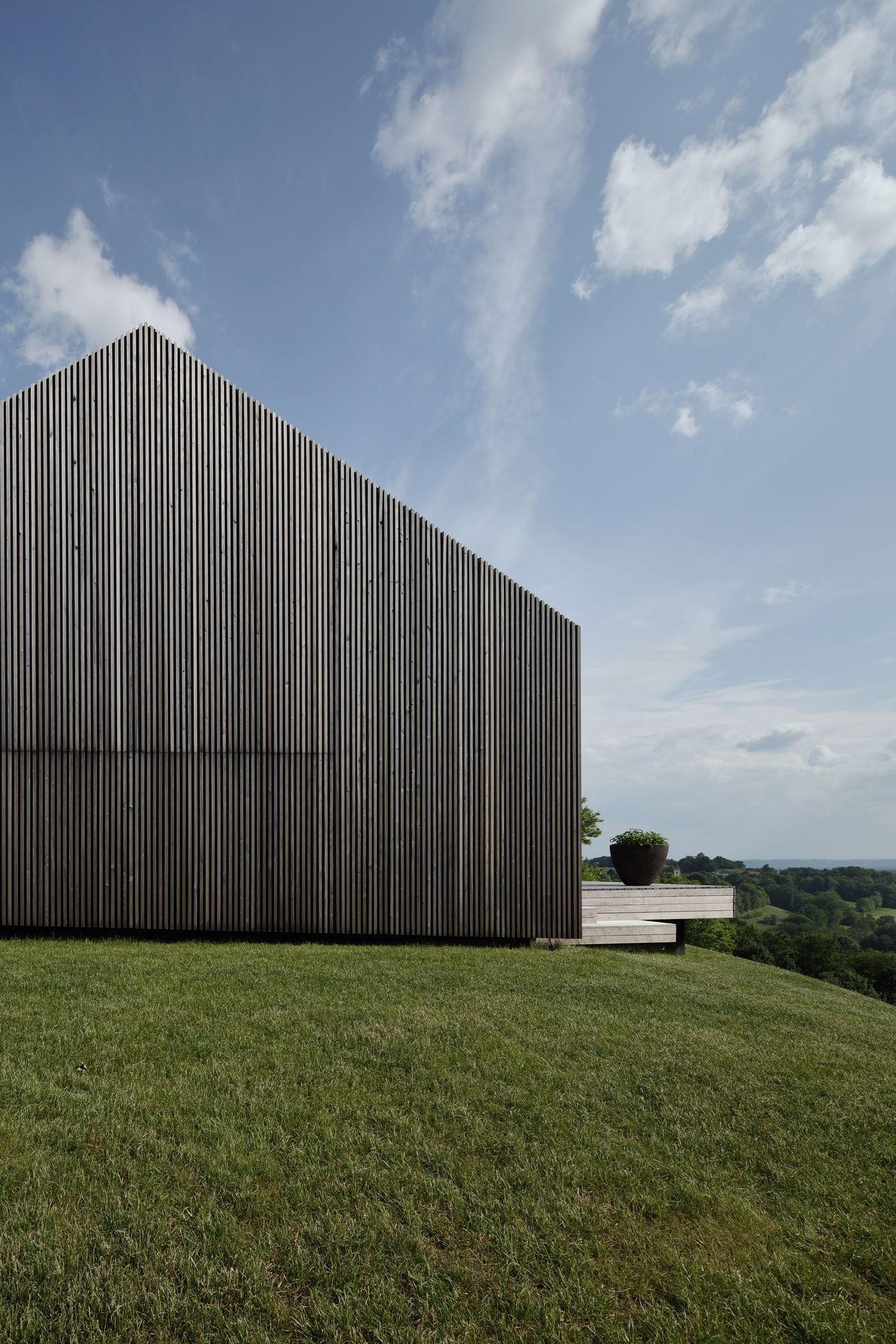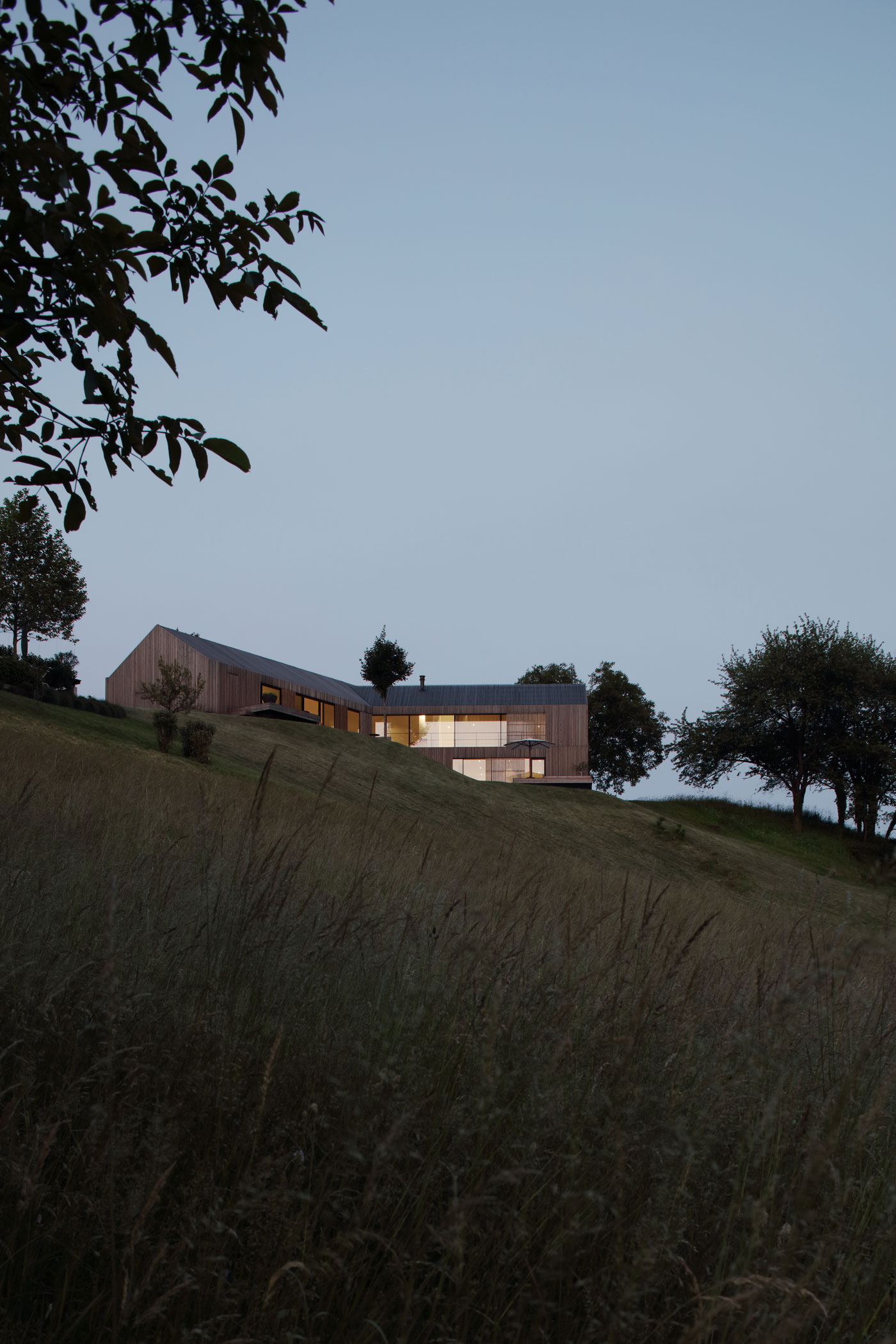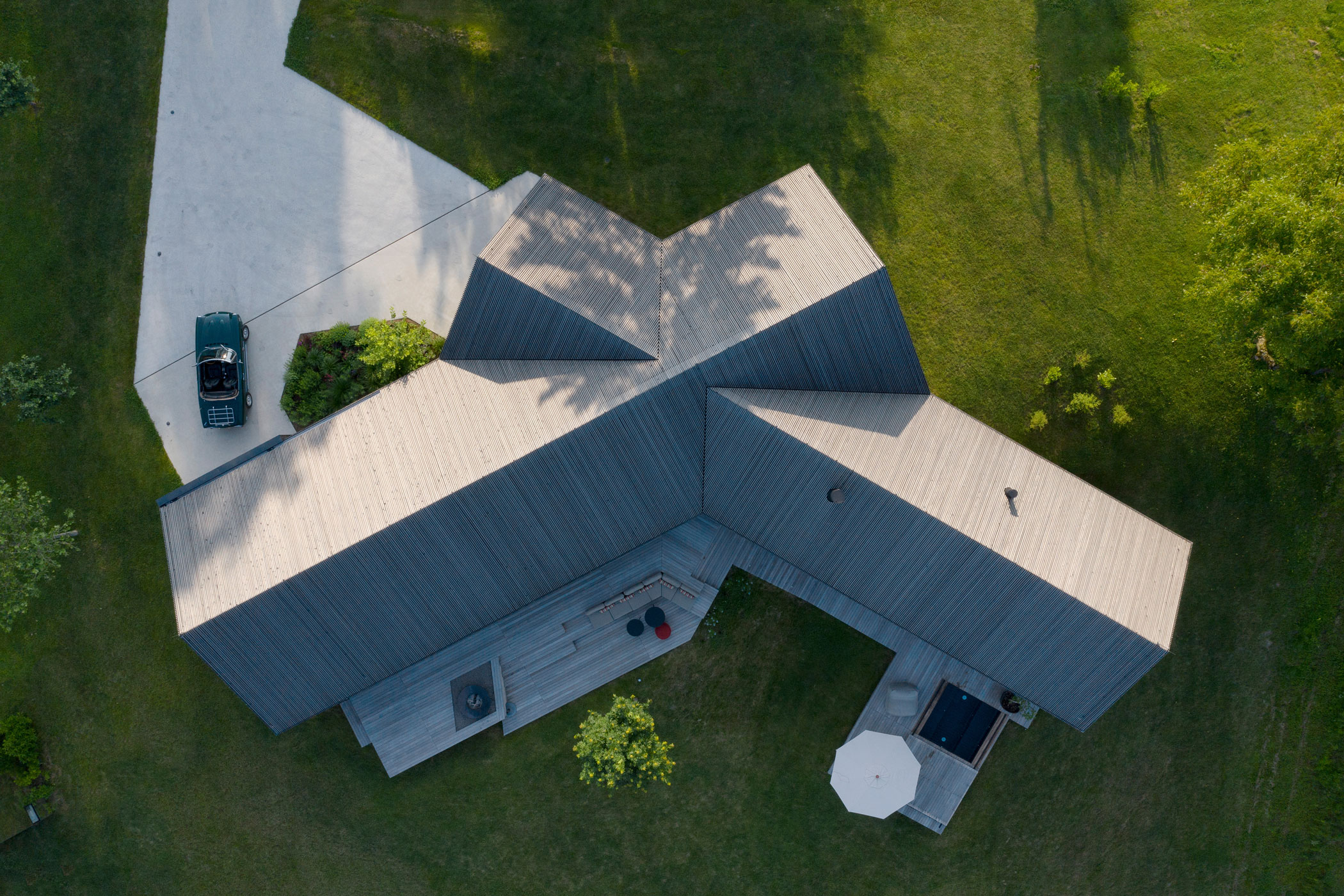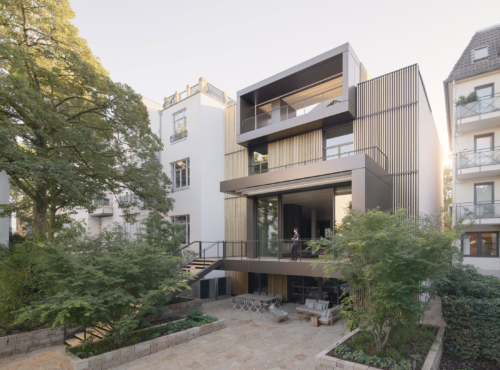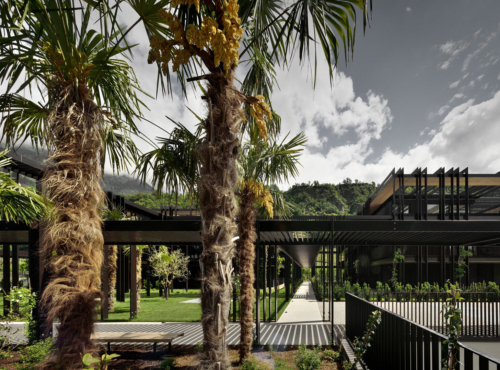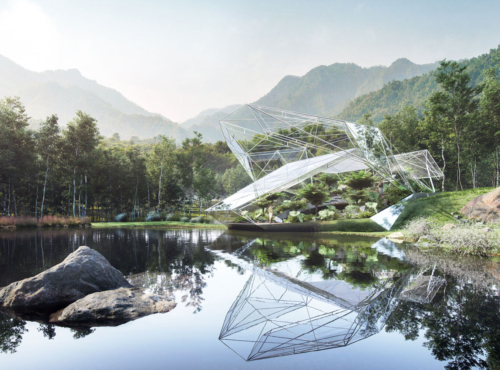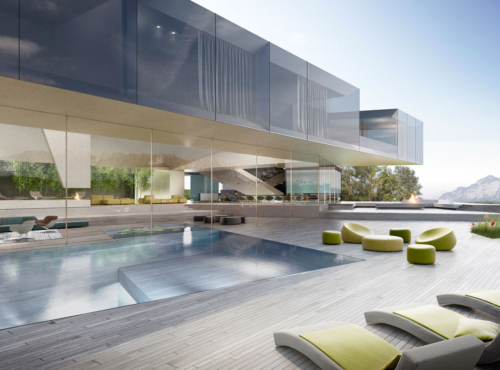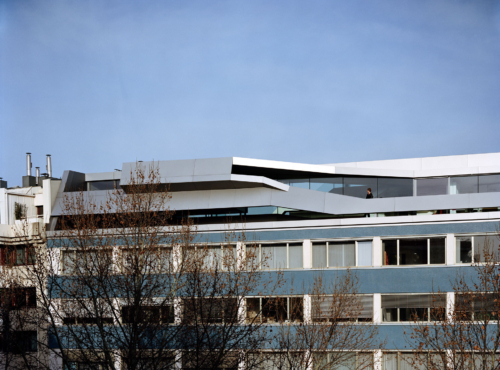Slovenia
- Interior Design
- Residential
- Built
Embedded in a gentle hilly landscape, the house complements an existing ensemble. The adopted building configuration, with its open angles and two intersecting saddle roofs, reflects the distinctive character of the site.
Completely closed towards the street, the generously glazed interior with its central living and dining area opens up to the impressive natural landscape. The spatial transition continues smoothly through a terrace laid out on several levels with a partially sheltered front area.
Each room offers a variety of visual connections internally as well as to the surrounding nature. Inside, the intersection of the roof as well as the overall height of the rooms is tangible. Tall the chosen materials, white walls and polished screed are restrained and thus emphasize the particular geometry of the house.
The outer skin of the constructive timber frame building consists of a wooden lamella facade, which is drawn over the saddle roof and due to the chosen bar depth gives the facade a plastic, as well as from different perspectives a changing appearance.
Photographer
Christian Brandstätter
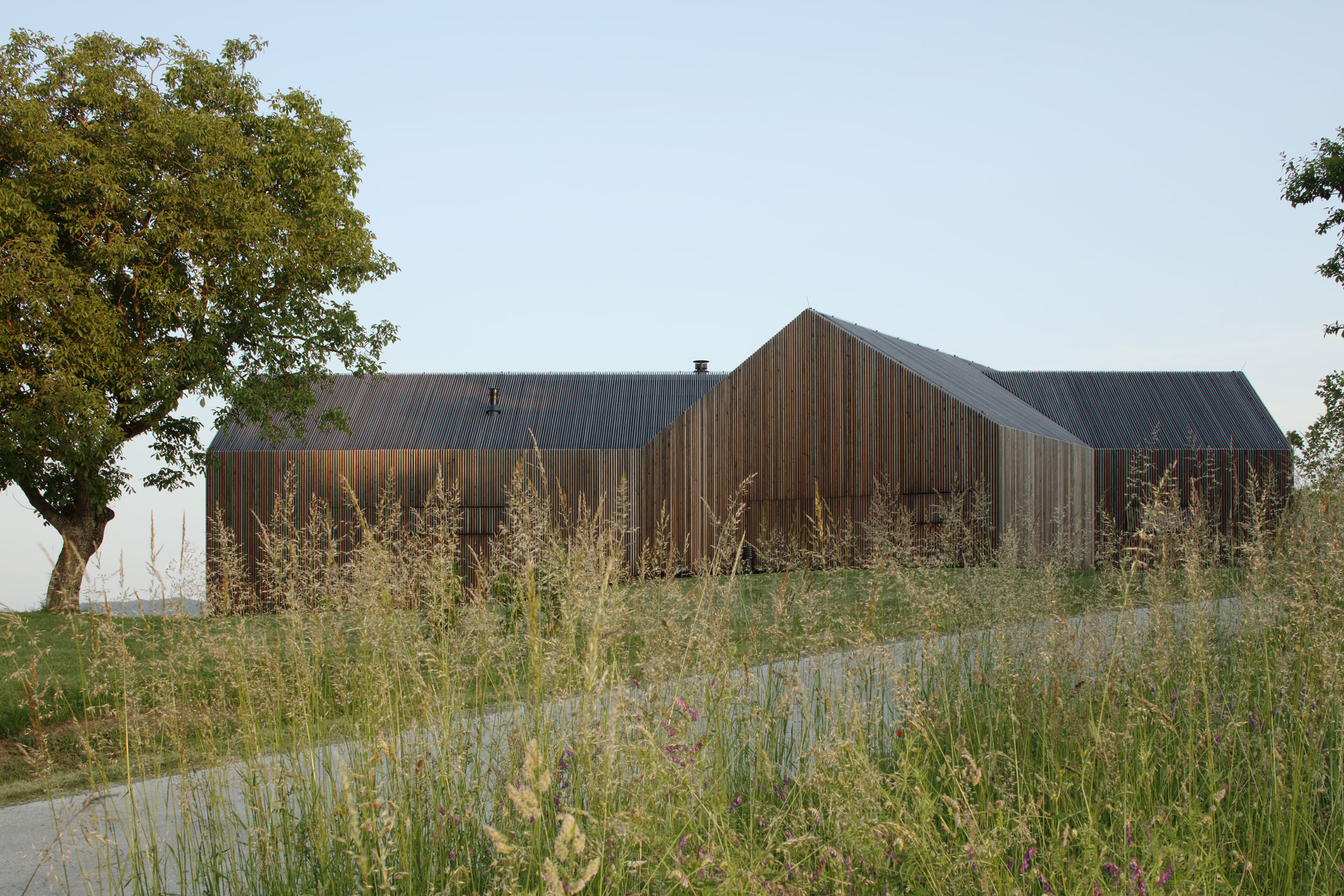
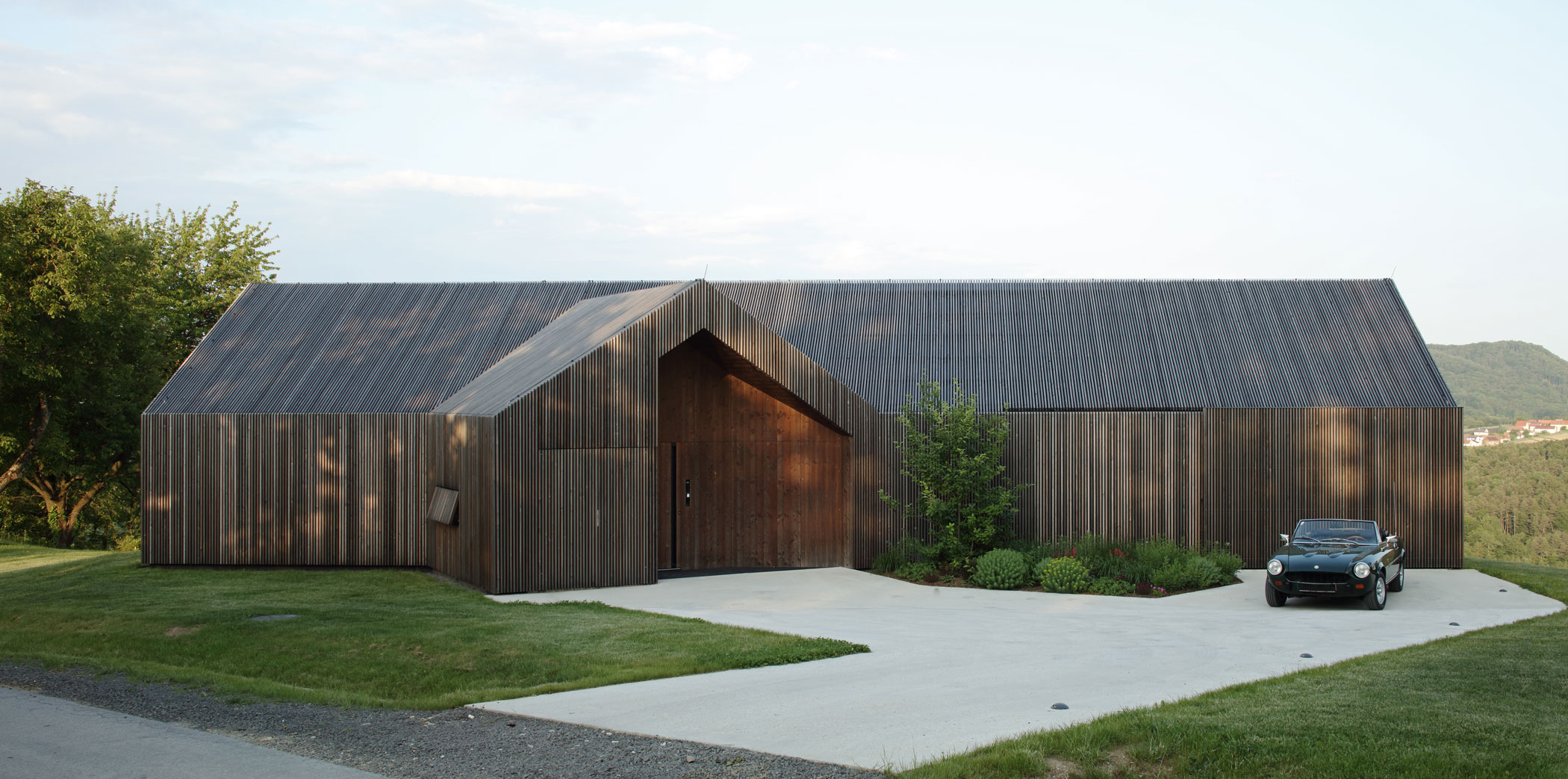
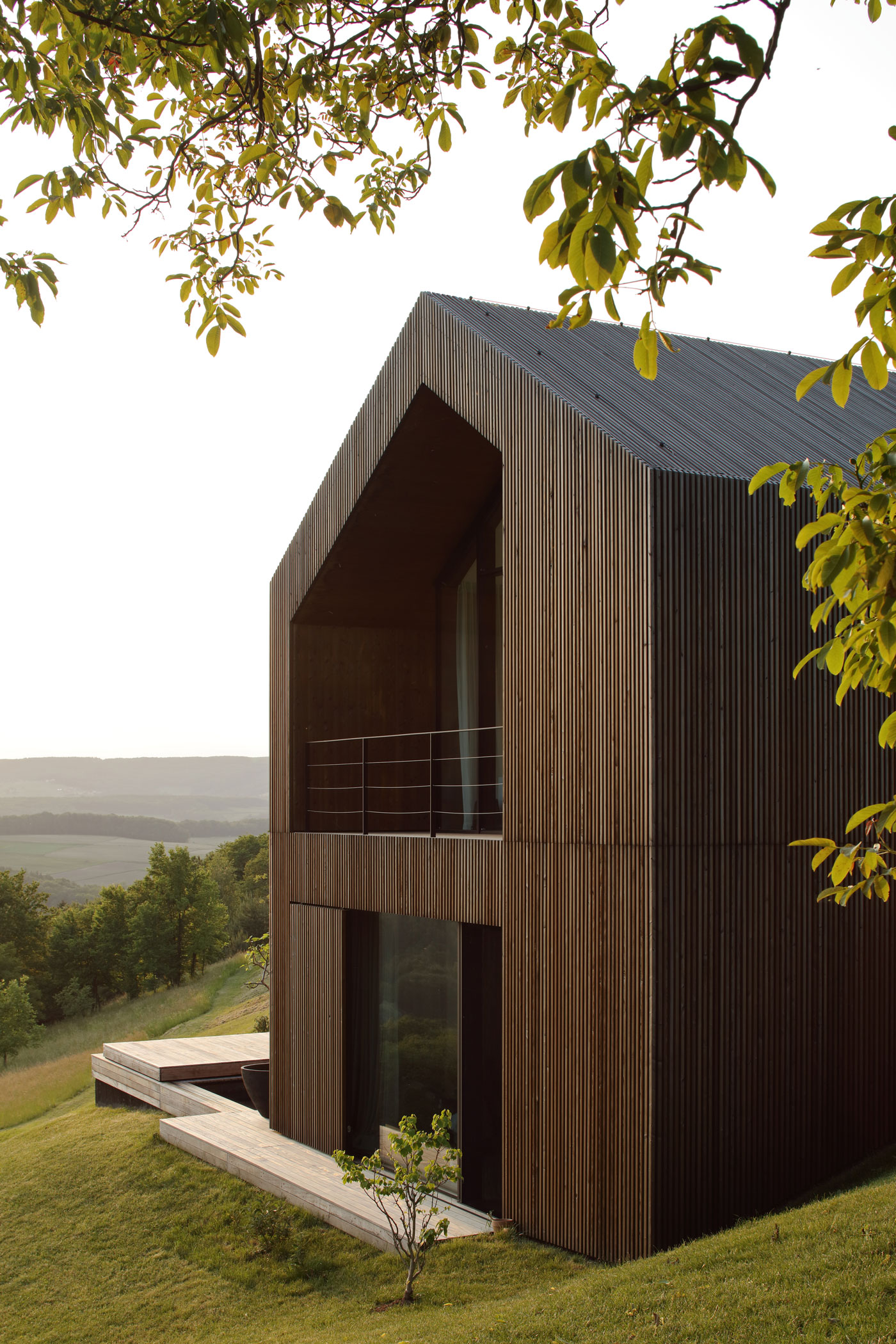

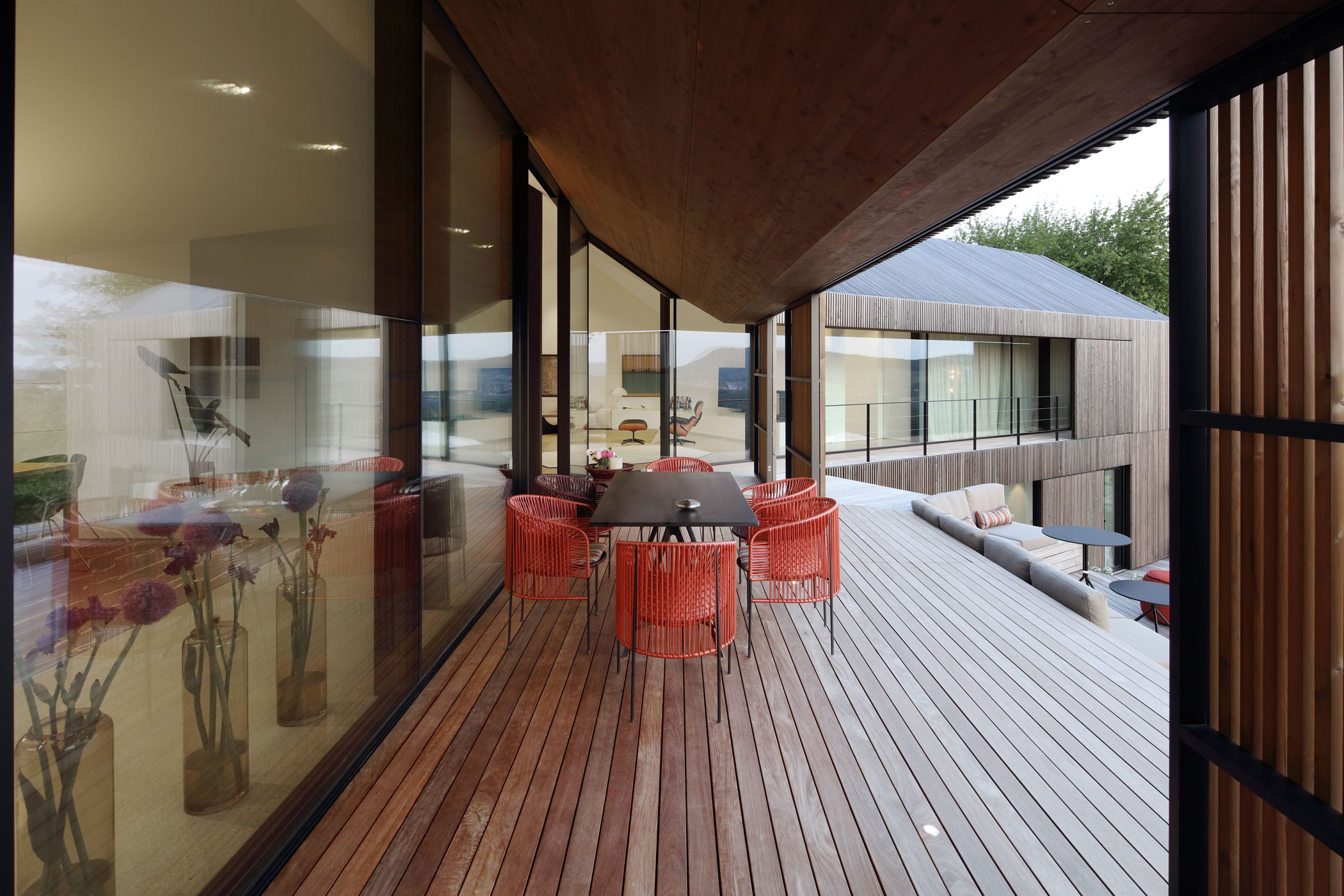

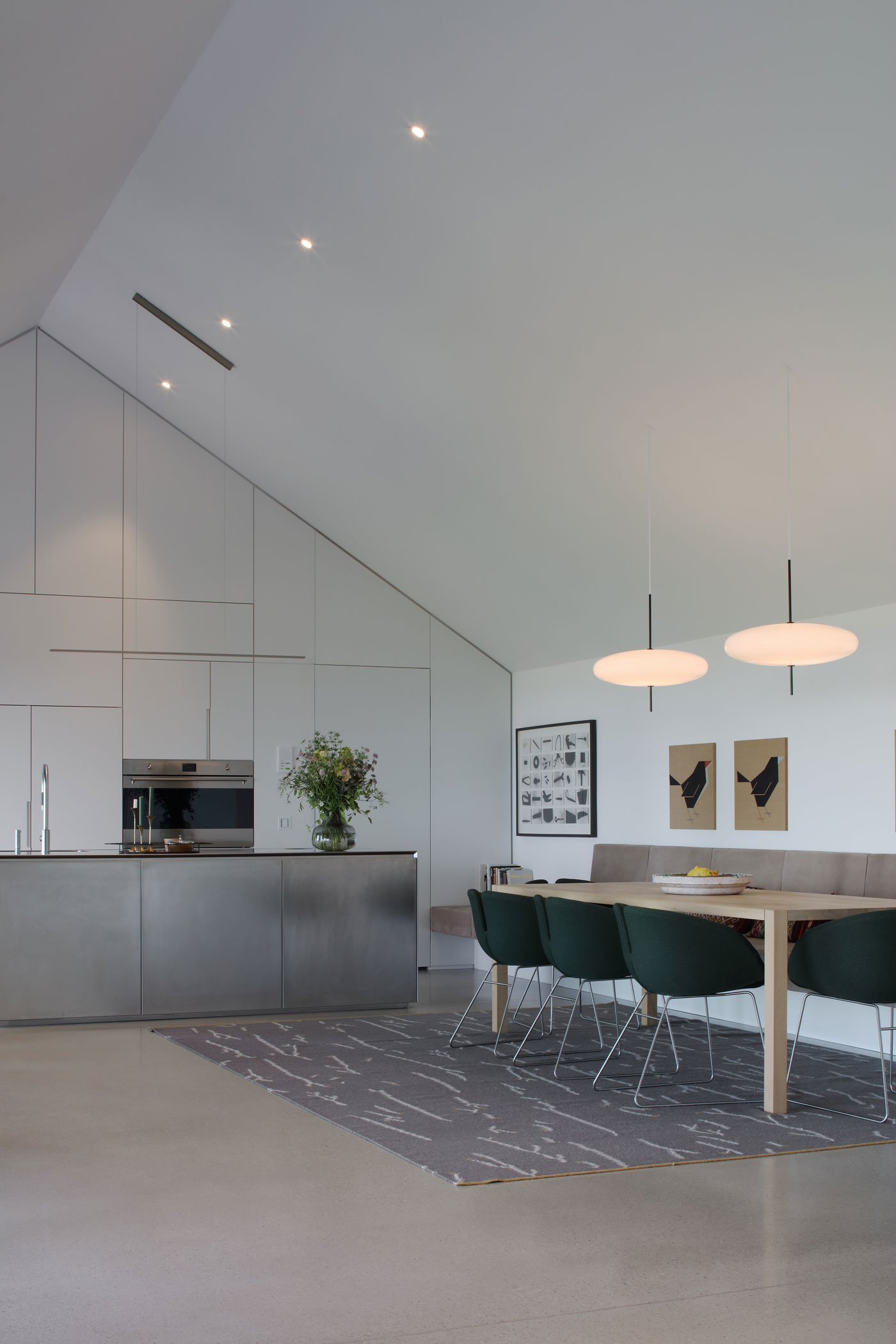
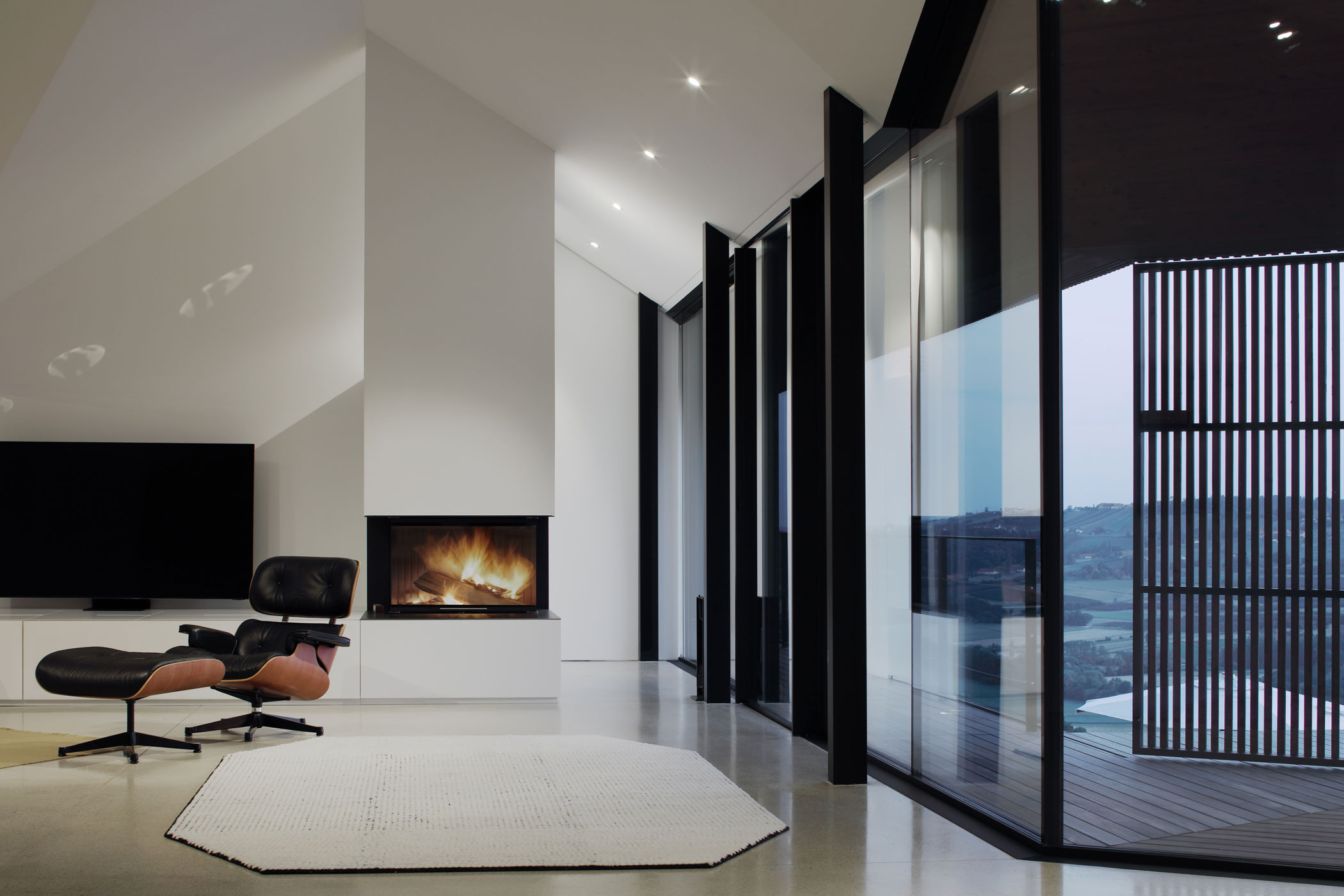
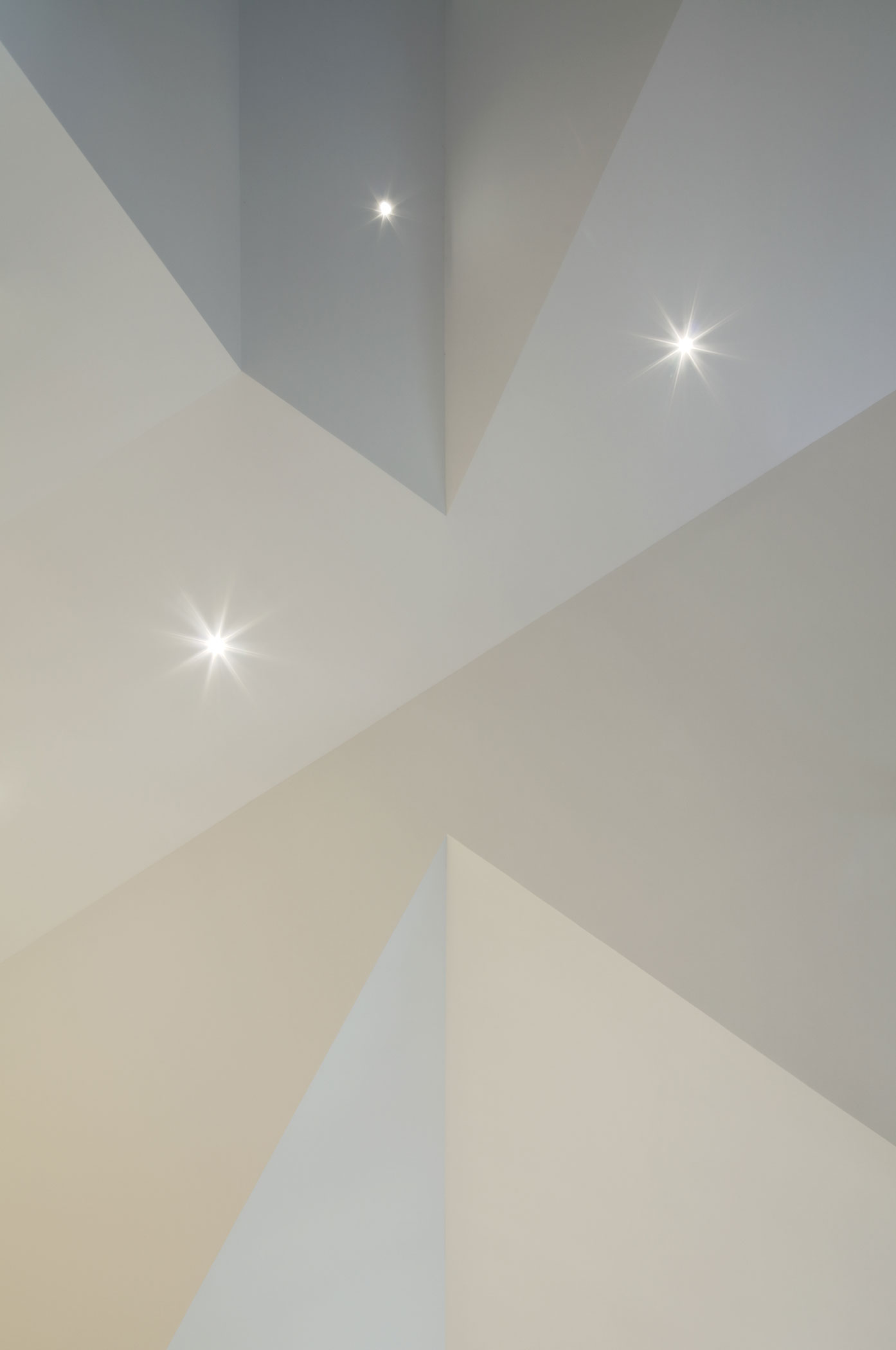
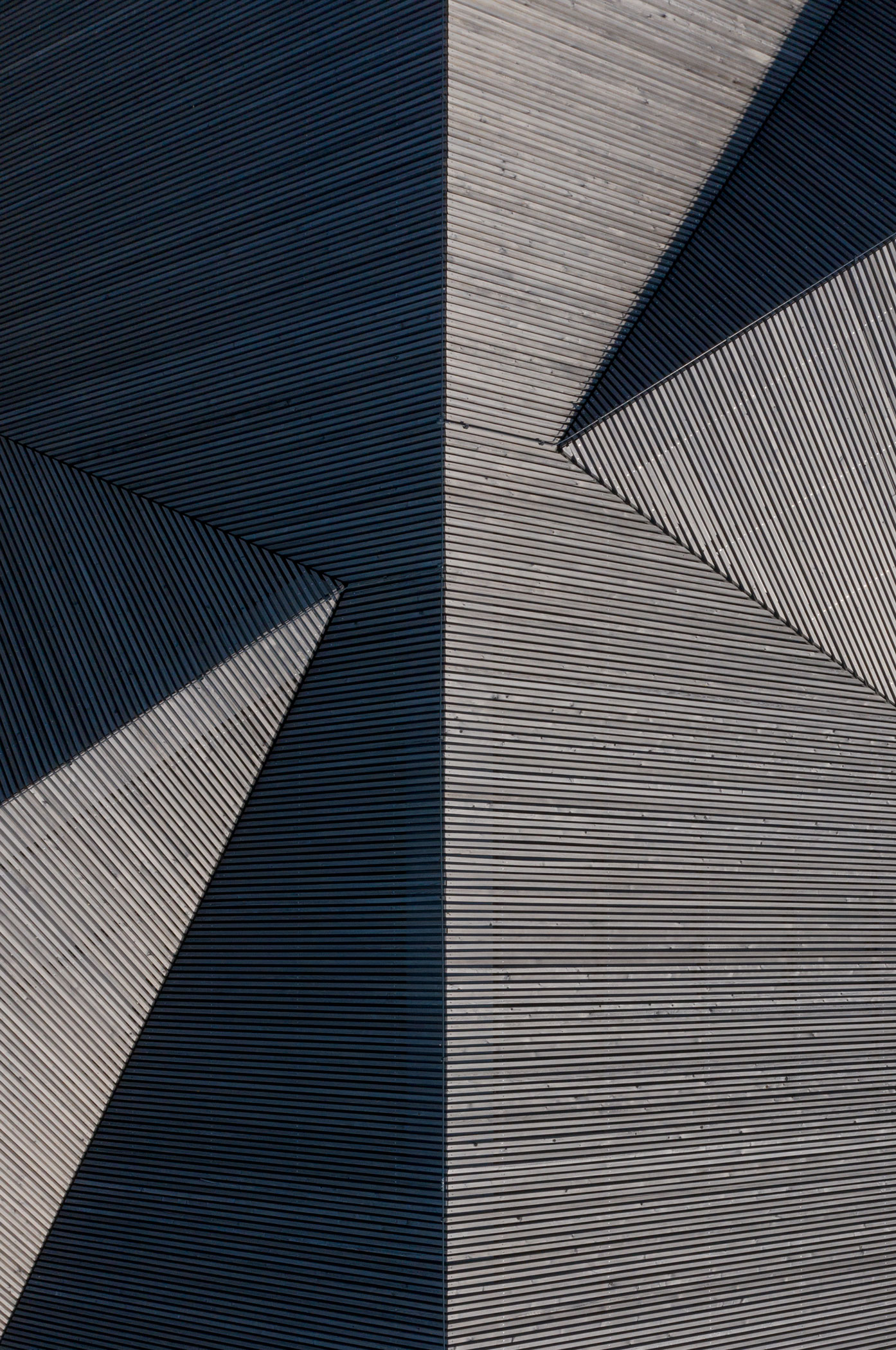
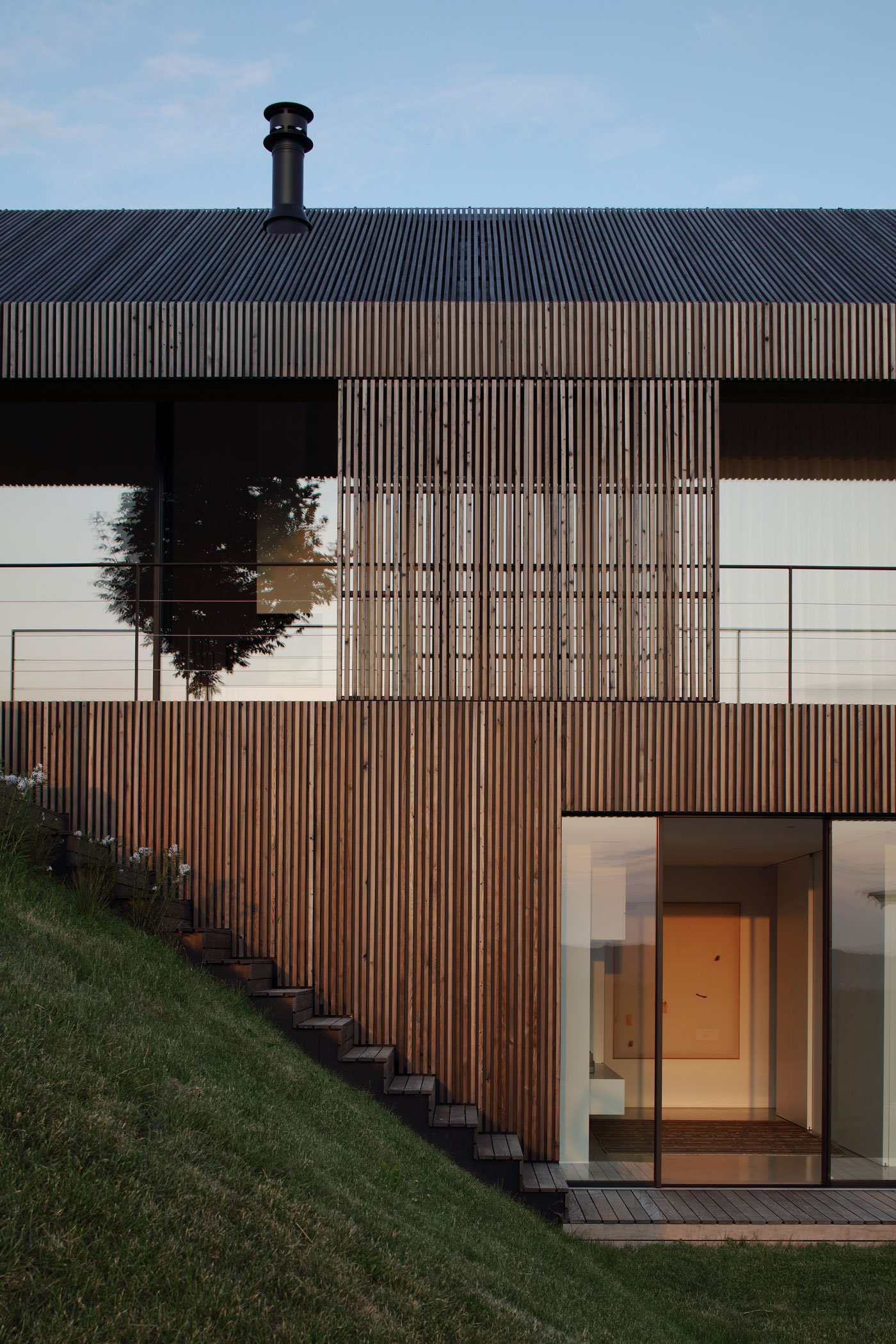
The spatial transition continues smoothly through a terrace laid out on several levels with a partially sheltered front area.
